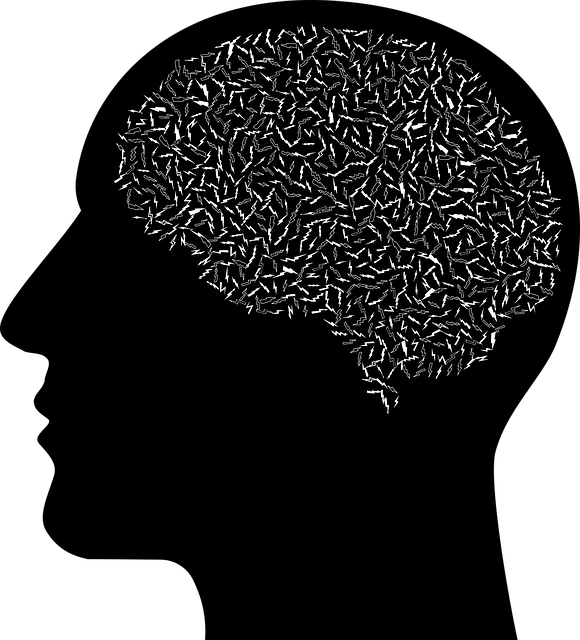The Kaiser Permanente Mental Health Access Center in Parker, Colorado, offers holistic mental wellness services through evidence-based practices and an inclusive environment, breaking down barriers to care. The Parker Model uses CBT, mindfulness, and positive psychology with cultural competency training for personalized coaching journeys. Customized strategies, measured through KPIs like client engagement and satisfaction, optimize program performance and tailor solutions for diverse populations' unique needs.
Mental wellness coaching programs are gaining prominence, especially with organizations like Kaiser Permanente recognizing their potential. This article explores the development of such programs, starting with Kaiser Permanente’s Mental Health Access Center’s vision for holistic care. We present the Parker Model, emphasizing a tailored approach. The discussion delves into program design by integrating evidence-based techniques and customization strategies to cater to individual needs. Finally, we explore measuring success through evaluation methods to optimize outcomes, ensuring effective mental wellness coaching.
- Understanding Kaiser Permanente's Mental Health Vision
- The Parker Model: A Holistic Approach to Coaching
- Program Design: Integrating Evidence-Based Techniques
- Customization Strategies for Individual Needs
- Measuring Success: Evaluating and Optimizing Outcomes
Understanding Kaiser Permanente's Mental Health Vision

Kaiser Permanente’s Mental Health Vision is a comprehensive initiative aimed at enhancing mental wellness access for all members. This vision includes establishing dedicated Mental Health Access Centers, such as the one located in Parker, Colorado. These centers serve as hubs for providing diverse psychological services under one roof, catering to various age groups and backgrounds. The primary focus lies in promoting holistic mental health by offering a range of programs and therapies tailored to individual needs.
The center’s strategic design integrates evidence-based practices, including self-esteem improvement workshops, emotional healing processes, and conflict resolution techniques. These interventions are instrumental in empowering individuals to manage stress, overcome challenges, and achieve long-term mental wellness. By fostering an inclusive environment, Kaiser Permanente strives to break down barriers to mental healthcare access, ensuring that everyone has the opportunity to thrive and lead fulfilling lives.
The Parker Model: A Holistic Approach to Coaching

The Parker Model represents a comprehensive approach to mental wellness coaching, drawing inspiration from evidence-based practices and holistic principles. This model prioritizes the individual’s overall well-being, addressing not just symptoms but also the underlying causes of distress. Inspired by the renowned Kaiser Permanente Mental Health Access Center, it emphasizes a collaborative and supportive environment where coaches guide clients towards self-discovery and empowerment.
By incorporating Compassion Cultivation Practices, the Parker Model fosters a sense of connection and understanding, crucial for managing stress and preventing depression. It encourages active listening, empathy, and self-compassion, enabling individuals to navigate challenges with resilience. Through this approach, mental wellness coaching becomes a transformative journey, offering not just tools for immediate relief but also long-lasting strategies for maintaining balance and promoting overall mental health, much like the supportive network provided by Kaiser Permanente.
Program Design: Integrating Evidence-Based Techniques

The design of effective mental wellness coaching programs requires a strategic integration of evidence-based techniques to ensure optimal support for individuals seeking improved emotional regulation and mental health. Drawing from resources like the Kaiser Permanente Mental Health Access Center, Parker, and other established best practices, these programs should be meticulously crafted to cater to diverse populations with varying needs. By combining cognitive-behavioral therapy (CBT), mindfulness practices, and positive psychology interventions, coaches can create a comprehensive framework that empowers clients to manage stress, overcome challenges, and enhance overall well-being.
Cultural competency training for healthcare providers is another vital component in program design, aiming to bridge the gap between diverse communities and mental health services. This involves recognizing and appreciating the uniqueness of cultural backgrounds, beliefs, and values, and adapting coaching methods accordingly. Such an inclusive approach ensures that mental wellness programs are accessible, culturally sensitive, and effective in fostering meaningful connections between coaches and clients from a wide range of backgrounds.
Customization Strategies for Individual Needs

Mental wellness coaching programs must be tailored to meet individual needs, reflecting the diverse spectrum of human experiences and challenges. Unlike a one-size-fits-all approach, customization strategies allow coaches to create personalized journeys that resonate deeply with each client. This involves assessing not just symptoms but also underlying factors contributing to mental health issues. By integrating insights from prominent centers like Kaiser Permanente’s Mental Health Access Center in Parker, coaches can design interventions focused on positive thinking, burnout prevention, and confidence boosting—essential components for holistic well-being.
Customization necessitates an inquisitive mindset and active listening. Coaches should explore clients’ aspirations, fears, and past experiences to tailor techniques that foster growth and resilience. This personalized touch not only enhances engagement but also significantly improves outcomes, ensuring that coaching remains a powerful tool in navigating life’s complexities and cultivating mental wellness.
Measuring Success: Evaluating and Optimizing Outcomes

Measuring success is a vital aspect of developing effective mental wellness coaching programs, especially when considering models like those offered by the Kaiser Permanente Mental Health Access Center in Parker. Evaluating outcomes allows for a deeper understanding of what works and where improvements can be made. This process involves setting clear goals and using quantitative and qualitative methods to assess progress. By tracking key performance indicators (KPIs), such as client engagement, satisfaction ratings, and changes in mental health symptoms, coaches can identify areas of strength and weakness within the program.
The data collected from these evaluations is instrumental in optimizing outcomes and enhancing the overall effectiveness of coaching interventions. This may include adjusting coaching strategies, incorporating new techniques, or tailoring programs to meet specific populations’ unique needs. For instance, the Kaiser Permanente center might find that its Community Outreach Program Implementation yields positive results in improving emotional healing processes, leading to a refinement of crisis intervention guidance based on these findings.
The development of mental wellness coaching programs, as exemplified by Kaiser Permanente’s Mental Health Access Center and the Parker Model, offers a holistic approach to enhancing mental well-being. By integrating evidence-based techniques and customizing strategies for individual needs, these programs can significantly improve outcomes. The Parker Model’s focus on holistic care aligns with Kaiser Permanente’s vision, ensuring that each client receives personalized support tailored to their unique journey towards mental wellness. Through continuous evaluation and optimization, as discussed in this article, mental wellness coaching programs can become powerful tools, making high-quality mental health access more accessible to all.






